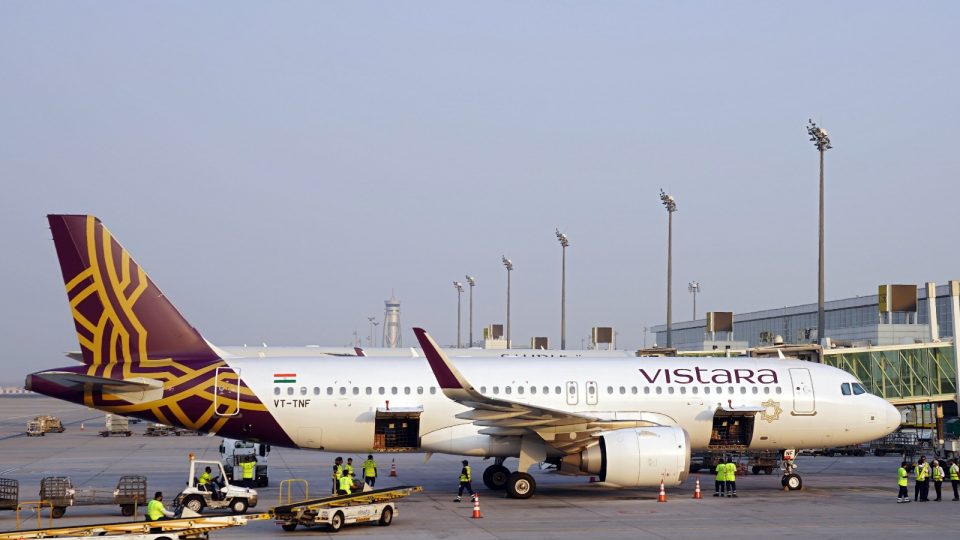
Vistara trims daily flights by 10% to stabilize operations, 'worst is behind us', says CEO
CEO Vinod Kannan in an internal message to employees assured them the airline has stabilised its operations by cancelling 30 daily flights and is devising plans for operations beyond May 24

After two weeks of disruptions of its flights, Vistara, backed by Tata Group and Singapore Airlines, has said that the worst is behind it.
The company now expects stable operations going ahead, said Vinod Kannan, chief executive officer of the company, in an internal message to employees on April 11, said business news reports.
According to Kannan, the company stabilised their operations by trimming its operations and cancelling 25 to 30 daily flights, which constitutes 10 per cent of its capacity.
The worst is behind them, he said, as they have already stabilised their operations, with their on-time performance increasing to 89 per cent on 9 April (second highest among all Indian airlines).
Kannan acknowledged the challenges faced by the airline at the start of the new financial year, citing the disruptions that led to the cancellation of 150 flights and delays for over 200 others around March 25-28.
Looking ahead, the Delhi-based airline is now devising plans for operations beyond May 24.
Pay cut for pilots
Vistara pilots went on leave unhappy with a new contract that reduces the guaranteed minimum flying allowance from 70 hours to 40 hours, resulting in a big monthly pay cut of ₹1 lakh for First Officers. The implementation of a uniform pay structure has effectively reduced their salaries by bringing them at par with Air India pilots.
However, Vistara claimed the disruptions happened due to operating at full capacity, citing various factors such as ATC delays, bird hits, and maintenance activities in the previous month.
According to CEO Vinod Kannan, these issues had a cascading effect on the airline's optimised network. He acknowledged that the pilot rosters were stretched thin and lacked the resilience to handle additional challenges.
Kannan admitted that better planning was necessary and said it has been a learning experience which they will thoroughly review.
Business reports pointed out that the airline faces rough weather as it tries to stabilise its operations ahead of its merger with Air India, and mend its relationship with its pilots. At the same time, it will have to ensure not to lose the goodwill of its passengers in India's competitive aviation market.

